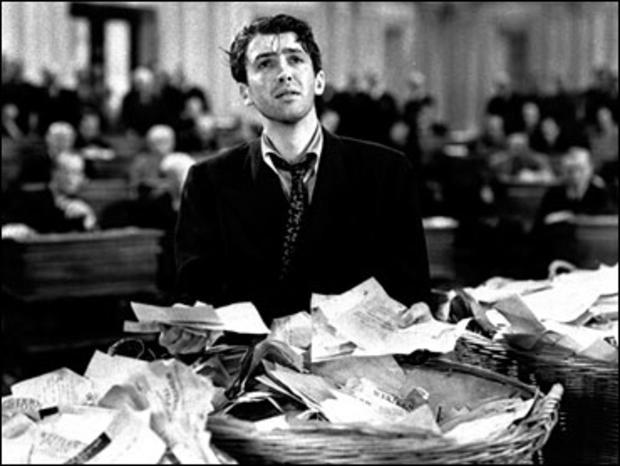Will Dems Move Forward with Filibuster Reform?
The GOP is fighting back against Senate Democrats' planned attempts at filibuster reform -- and it appears Democratic leadership may be flinching.
When the Senate returns to work on Wednesday, Democratic Sen. Tom Udall of New Mexico intends to introduce a proposal for new limits on the filibuster -- a tool a single senator can use to stall debate in the chamber until 60 members vote to close debate. Republicans repeatedly used the filibuster to stall or completely foil Democratic goals last year, prompting just about universal agreement among Senate Democrats that filibuster rules should be reformed.
However, facing Republican backlash -- and trepidation among some Democrats that scaling back the filibuster could come back to haunt the party once they're back in the minority -- Senate Majority Leader Harry Reid may move to stall a vote on Udall's proposed reforms to give senators more time to negotiate the terms of reform.
Udall penned an op-ed in the Washington Post today explaining why he'll be introducing his reform proposals.
"Over the past few years, open and honest debate has been replaced too often with secret backroom deals and partisan gridlock," he wrote. "Up-or-down votes on important issues have been unreasonably delayed or blocked entirely at the whim of a single senator. In the past two years alone, more than 400 House-passed bills went unnoticed by the Senate... We need to bring the workings of the Senate out of the shadows and restore accountability within the chamber."
The senator explained the complex process of reforming the filibuster: Senate rules dictate that it usually takes two-thirds of the Senate to change the rules. However, on the first day of a new legislative session, it only takes a 51-vote majority to change the rules. Hence, if Democrats want to reform the filibuster, it's important they consider those changes on Wednesday.
However, Reid could use some procedural maneuvering to extend the debate, according to reports. As the New York Times explains, Reid could "recess" the Senate at the close of business Wednesday, technically keeping the "first day" of the new session open until Congress returns from the recess a few weeks later.
During that time, the Times reports, Reid could negotiate specific filibuster reforms with Senate Republican Leader Mitch McConnell. Democratic Sen. Charles Schumer (N.Y.), chairman of the Rules Committee, could also negotiate with Republican Sen. Lamar Alexander (Tenn.), the top Republican on the Rules Committee.
Alexander has made it clear he'll be aggressively opposing any reforms that scale back the filibuster. He is giving a speech today at the Heritage Foundation, a conservative think tank, in which he'll argue the proposed changes represent a power grab on the part of Democrats.
Meanwhile, the Senate Republican Communications Center is pointing reporters to a slew of past statements from Democratic senators defending the filibuster rules, including a quote from then-Sen. Barack Obama from 2005.
"What [the American people] do not expect is for one party, be it Republican or Democrat, to change the rules in the middle of the game so they can make all the decisions while the other party is told to sit down and keep quiet," he said. "The American people want less partisanship in this town, but everyone in this chamber knows that if the majority chooses to end the filibuster, if they choose to change the rules and put an end to democratic debate, then the fighting, the bitterness, and the gridlock will only get worse."
To be clear, Democrats aren't now proposing to end the filibuster completely.
Politico reports that Democrats are seeking changes that would limit its power, such as actually requiring senators to make their arguments on the Senate floor. These days, a senator simply has to declare that he is "filibustering" a bill in order to stall it. Democrats are also reportedly interested in other changes, such eliminating secret holds on bills, and eliminating the filibuster in the case of votes to start debate on a bill.
Meanwhile, Republicans could seek rule changes that force the majority party to allow the minority to offer amendments more often. Republicans have repeatedly resorted to using the filibuster, they say, because Reid often refuses to let them propose any changes to a bill on the Senate floor.
